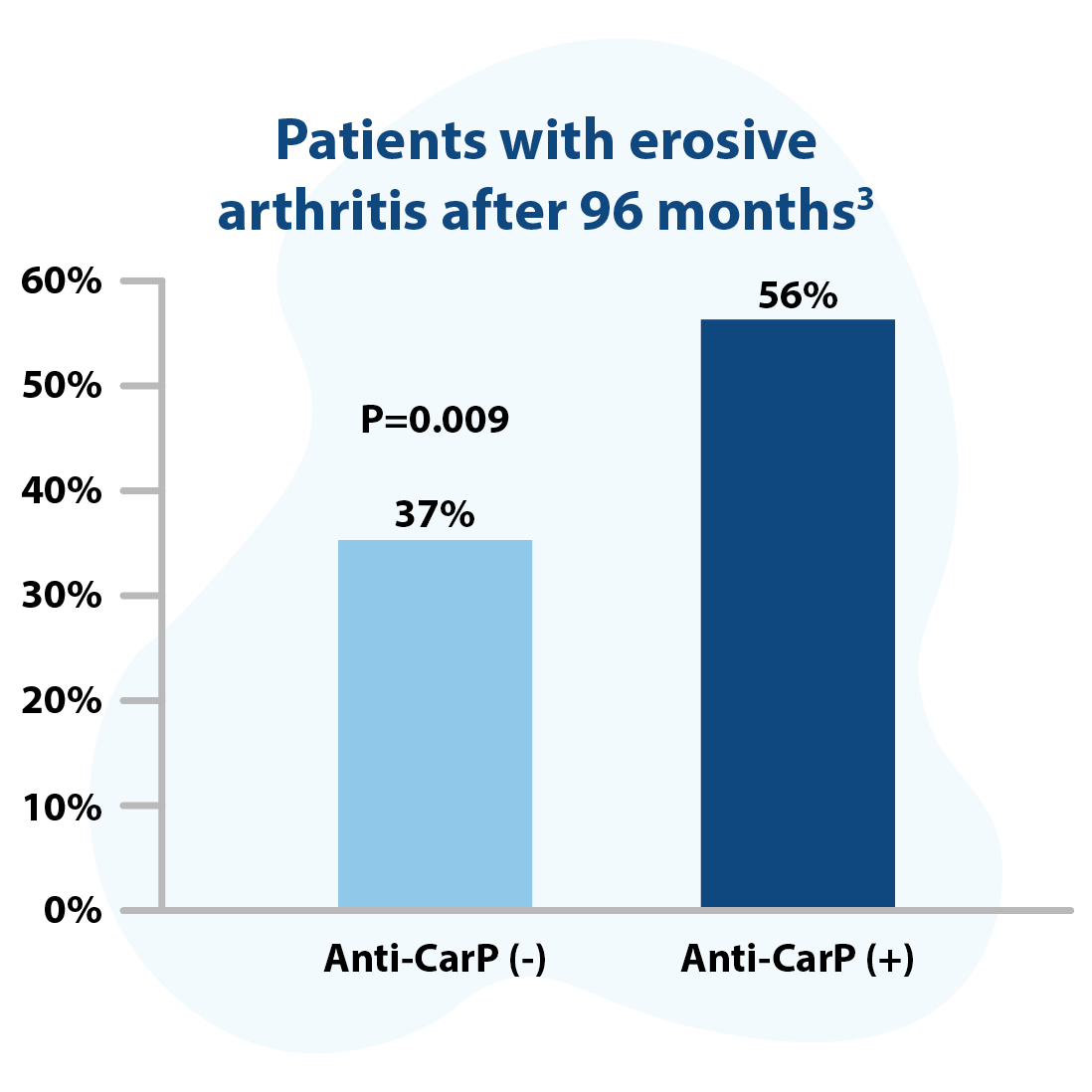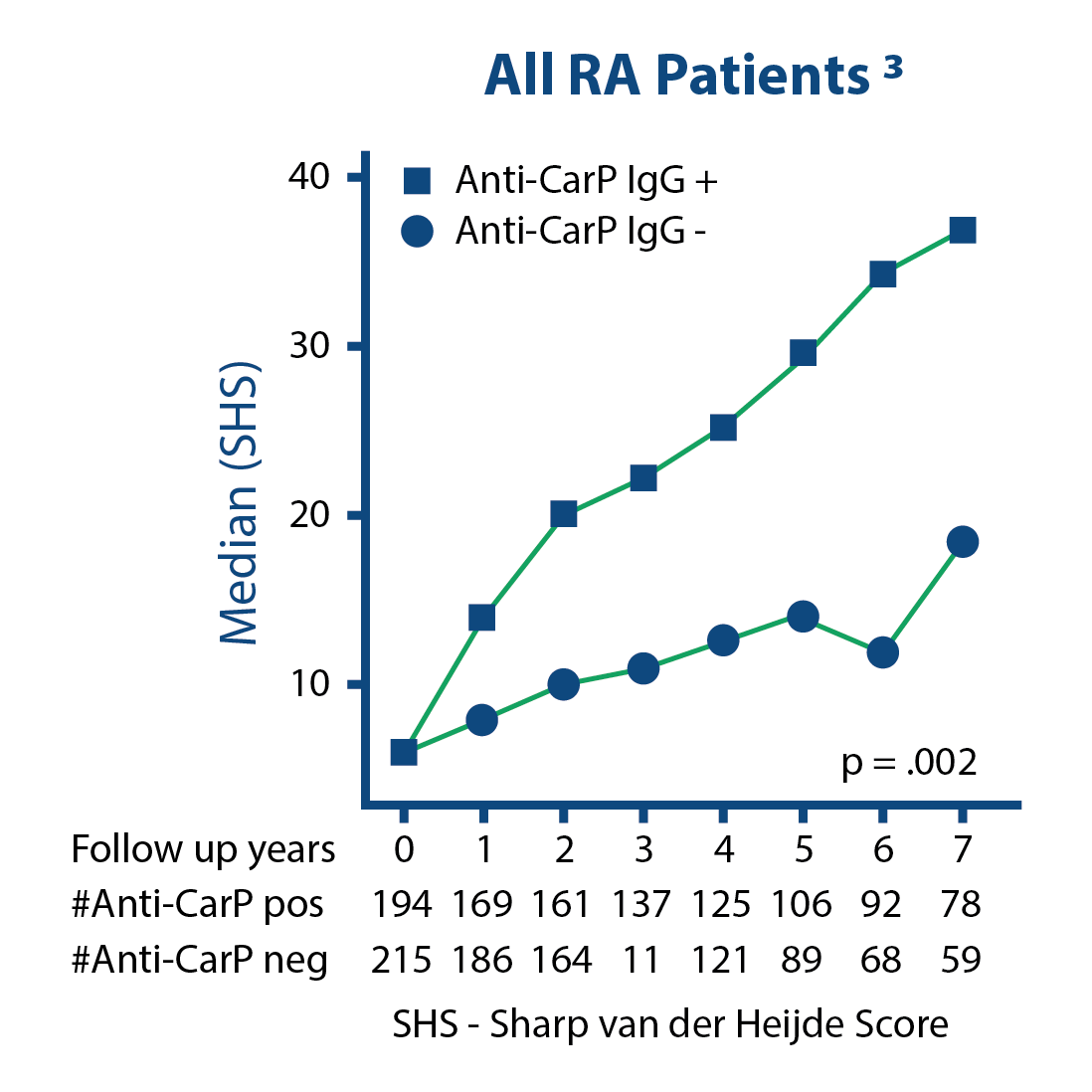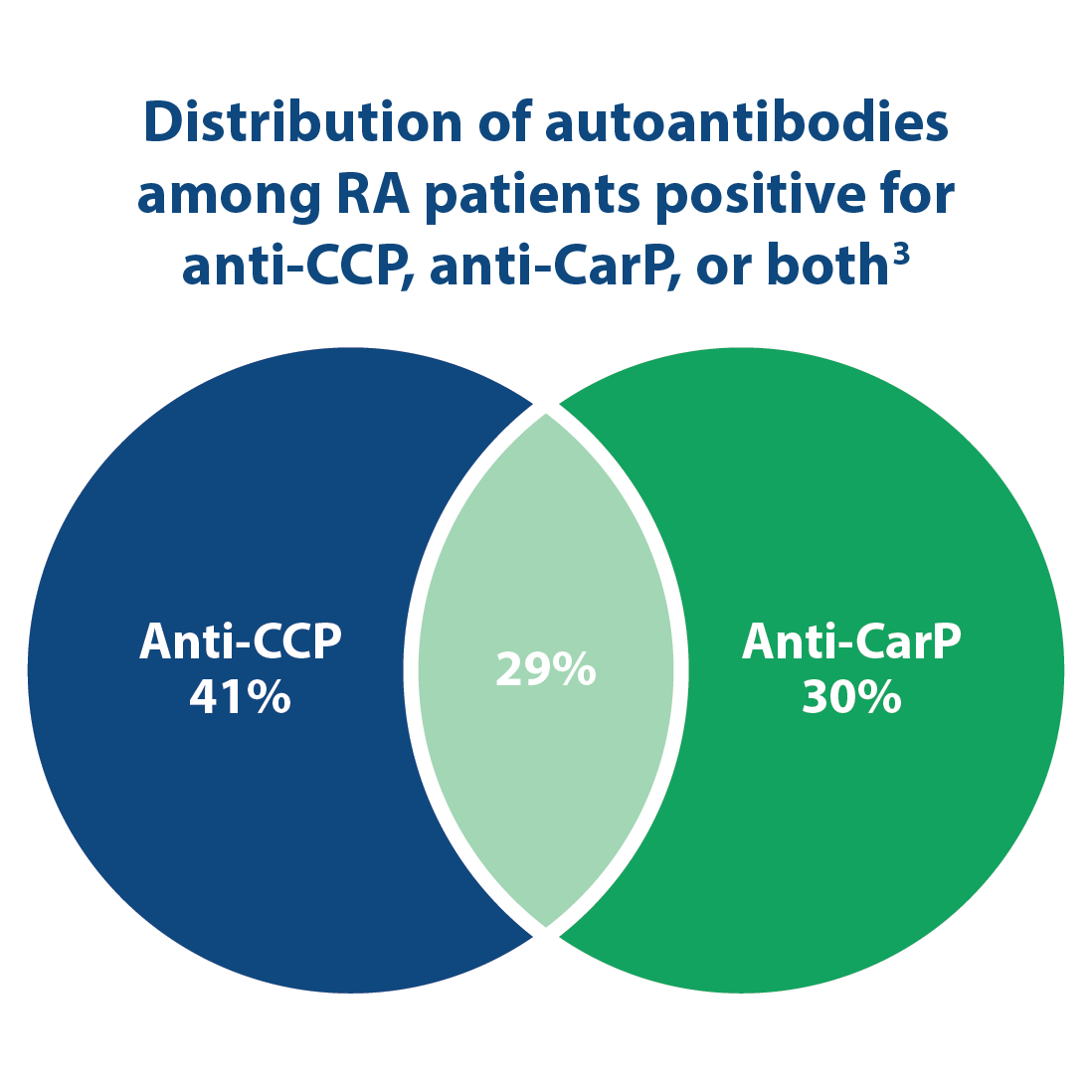AVISE Anti-CarP
A blood test for rheumatoid arthritis
AVISE Anti-CarP is a specialized lab test to help identify rheumatoid arthritis (RA) patients with an increased risk for erosive joint damage. Early diagnosis of RA may give the best chance of gaining and maintaining control over the permanent and debilitating effects of this disease.

The role of anti-CarP autoantibodies in RA diagnosis and prognosis
Anti–carbamylated protein autoantibodies (anti-CarP) are being recognized as reliable biomarkers in RA patients at higher risk for severe disease progression. Among those suffering from RA, 30-50% have elevated levels of anti-CarP.2 Those patients need to keep their disease activity under control as studies show that patients testing positive for anti-CarP are 2.1 times more likely to experience joint erosions compared to those without this marker.3 Fortunately, a specialized assay has been validated by Exagen to make this testing available using a routine blood draw.
Anti-CarP autoantibodies indicate severe RA progression
The presence of anti-CarP is associated with:
- A two times greater likelihood of developing erosive disease3
- Aggressive joint erosions within 3 years3
- A two times higher likelihood of requiring biologic therapy for treatment3
- An increased risk for severe RA progression independent of anti-cyclic citrullinated protein (anti-CCP) or rheumatoid factor (RF)

Anti-CarP: A biomarker for early RA
Distinct from citrullinated proteins, some proteins undergo carbamylation. When this process is out of balance the body can develop antibodies which recognize and bind to carbamylated proteins. These are called anti-CarP autoantibodies, and have been identified as useful biomarkers for the diagnosis and prognosis of RA. While not as specific for RA as anti-CCP, 33% of RA patients have anti-CarP in their blood. They can also be detected years before the onset of symptoms and have been found in RA patients who do not test positive for either RF or anti-CCP.4-6


Traditional biomarkers may miss early or seronegative rheumatoid arthritis in some patients
Patients and their healthcare providers have long relied on tests for anti-CCP and RF to manage RA. While each biomarker has an important role, they are not always present and alone may be insufficient. Therefore, anti-CarP has recently become recognized as a useful marker for determining the status of RA in patients where the traditional biomarkers otherwise could not.4-6

Our Products
At Exagen, we continue to translate our discovery and development into real solutions that are safe, reliable, and cost-effective. Our AVISE® product line offers a comprehensive range of diagnostic, prognostic, and monitoring tests for autoimmune diseases.
References
- Fautrel B, Alten R, Kirkham B, et al. Call for action: how to improve use of patient-reported outcomes to guide clinical decision making in rheumatoid arthritis. Rheumatology international. 2018;38(6):935-947.
- Shi J, et al. Autoantibodies recognizing carbamylated proteins are present in sera of patients with rheumatoid arthritis and predict joint damage. Proceedings of the National Academy of Sciences, 2012;108(42):17372-17377.
- Truchetet ME, et al. Association of the presence of anti–carbamylated protein antibodies in early arthritis with poorer clinical and radiologic outcome. Arthritis Rheumatology, 2017; 69(12): 2292-2302.
- Verheul MK, Böhringer S, van Delft MAM, et al. Triple Positivity for Anti–Citrullinated Protein Autoantibodies, Rheumatoid Factor, and Anti–Carbamylated Protein Antibodies Conferring High Specificity for Rheumatoid Arthritis. Arthritis & Rheumatology. 2018;70(11):1721-1731.
- Li L, Deng C, Chen S, et al. Meta-Analysis: Diagnostic Accuracy of Anti-Carbamylated Protein Antibody for Rheumatoid Arthritis. PloS one. 2016;11(7):e0159000.
- Regueiro C, Nuño L, Ortiz AM, et al. Value of Measuring Anti-Carbamylated Protein Antibodies for Classifification on Early Arthritis Patients. Scientifific Reports. 2017;7(1):12023

